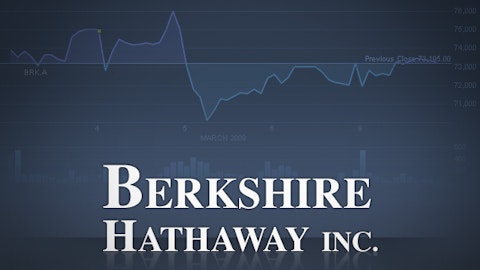
Exposure to rapidly growing economies in Korea and Asia that are more reliant on capital intensive industries (auto, heavy machinery, appliances and electronics)
Relatively attractive valuations
Vertically integrated financial service companies with little competition from alternative financing sources (hedge funds and private equity)
Ability to provide additional financial services such as investments and wealth management
Conservatively managed
Fundamentals and valuations
According to the World Economic Outlook published by the IMF in April 2013, Korea’s real GDP is expected to grow by about 2.8% in 2013, compared to 1.6%, 8.0%, -0.3%, and 1.9% for Japan, China, the Euro Area, and the U.S, respectively. While the economic environment in Korea and Asia, in general, seems healthier than in Europe and the U.S., KB, Woori Finance Holdings Co., Ltd. (ADR) (NYSE:WF) and Shinhan Financial Group Co., Ltd. (ADR) (NYSE:SHG) ADRs do not trade at premiums compared to Wells Fargo & Co (NYSE:WFC) and the S&P 500, for example. The table below compares recent fundamentals and valuation measures between the three Korean banking giants to those of Wells Fargo & Co (NYSE:WFC) the S&P 500.
| KB | WF | SHG | WFC | S&P 500 | |
| Market capitalization | $12.1B | $8.3B | $15.8B | $194B | $13,857B |
| Dividend yield | 2.10% | 2.20% | 1.90% | 2.70% | 2.20% |
| Operating margin | 30.50% | 26.80% | 37.60% | 34.40% | 15.30% |
| Net interest margin | 2.88% | 2.38% | 3.36% | 3.76% | n/a |
| Tier 1 ratio, Basel I | 10.64% | 9.20% | 12.64% | 10.12% | n/a |
| Price-to-earnings (2013) | 5.8 | 6.6 | 3.3 | 9.8 | 14.1 |
| Return on equity | 11.09% | 8.70% | 9.60% | 12.95% | 13.70% |
| Return on assets | 0.90% | 0.50% | 0.80% | 1.41% | 1.20% |
| Nonperforming assets as a % of loans | 1.36% | 1.77% | 1.28% | 3.07% | n/a |
| Efficiency ratio | 44.5%* | 47.6%* | 47.28% | 58.80% | n/a |
| Price-to-book-value | 0.6 | 0.5 | 0.7 | 1.3 | 6.9 |
| Allowance as a % of total loans | 1.51% | 1.77% | 2.26% | 2.19% | n/a |
| Beta | 2 | 2.3 | 1.8 | 1.4 | 1 |
| 1-year total return (as of 4.22.13) |
Source: Capital IQ, Thomson Reuters, SEC filings, author’s calculations. All data is as of December 31, 2012 or for the year ended on that date unless indicated otherwise.
* 2011
As seen from the above table, KB Financial Group, Inc. (ADR) (NYSE:KB), Woori Finance Holdings Co., Ltd. (ADR) (NYSE:WF) and Shinhan Financial Group Co., Ltd. (ADR) (NYSE:SHG) outperformed Wells Fargo & Co (NYSE:WFC) in terms of efficiency ratios, nonperforming assets as a percentage of loans and allowance as a percentage of total loans. At the same time, their price to earnings and price to book ratios are much smaller than that of Wells Fargo. One of the reasons for this discrepancy of risk and reward between the Korean and U.S. financial institutions is that the interest rate in the U.S. is 0.25%, while the base rate in South Korea is 2.75%, leaving a smaller net interest margin opportunity for Korean banks. Also, most U.S. banks have a dividend yield of nearly 3%, while the dividend yield of their Korean counterparts is closer to 2%. Korean banks have been overly conservative, and the reason for the lower dividend is that they have decided to keep a larger portion of income in their retained earnings. As the global economy stabilizes, the dividend yield for Korean banks should rise.
Business challenges and opportunities
While the Korean economy is expected to grow healthily in 2013 and beyond, there are certain challenges such as households over-burdened with debt and a mini housing bubble. The new president, Park Geun-hye, has promised to liberalize the economy further while improving the welfare of Koreans. One of the tools that Park’s administration is implementing is the creation of a multibillion fund to help low-income defaulted borrowers restructure their loans. The fund will not use public money and will issue long-term bonds to obtain financing. This should strengthen the financial and housing sectors.
On a company specific level, KB Financial Group, Inc. (ADR) (NYSE:KB) sees opportunities from expanding overseas. It has had recent challenges from its shareholding in POSCO and Hyundai Merchant Marine and an investment in Kazakhstan Bank Center Credit. Similarly, Woori Finance Holdings Co., Ltd. (ADR) (NYSE:WF) incurred losses from its loans to the bankrupt STX Shipbuilding. It will likely benefit from a premium due after its complete privatization (57% of its shares are held by the Korea Deposit Insurance Corporation) and its international growth in Vietnam and China. Finally, Shinhan is planning to expand its non-banking business as it has a high quality life insurer and asset management businesses. Also, it is a company whose CEO is not likely to be replaced in the near future (as long as the political situation remains stable). On the negative side, the bank had exposure to the shipbuilding and construction industries.
Conclusion
The challenges facing KB Financial Group, Inc. (ADR) (NYSE:KB), Woori Finance Holdings Co., Ltd. (ADR) (NYSE:WF) and Shinhan seem to be short-term or already accounted for in the banks’ conservative estimates for losses. On the other hand, the opportunities from international growth, a growing local economy and demand for diverse financial services, and the new business friendly government bode well for a continued solid long-term investment performance. This, combined with share prices that are attractively priced, make KB, Woori and Shinhan ADRs worth considering.
The article Three Korean Banks With ADRs That Deserve Interest originally appeared on Fool.com and is written by Delian Naydenov.
Copyright © 1995 – 2013 The Motley Fool, LLC. All rights reserved. The Motley Fool has a disclosure policy.

